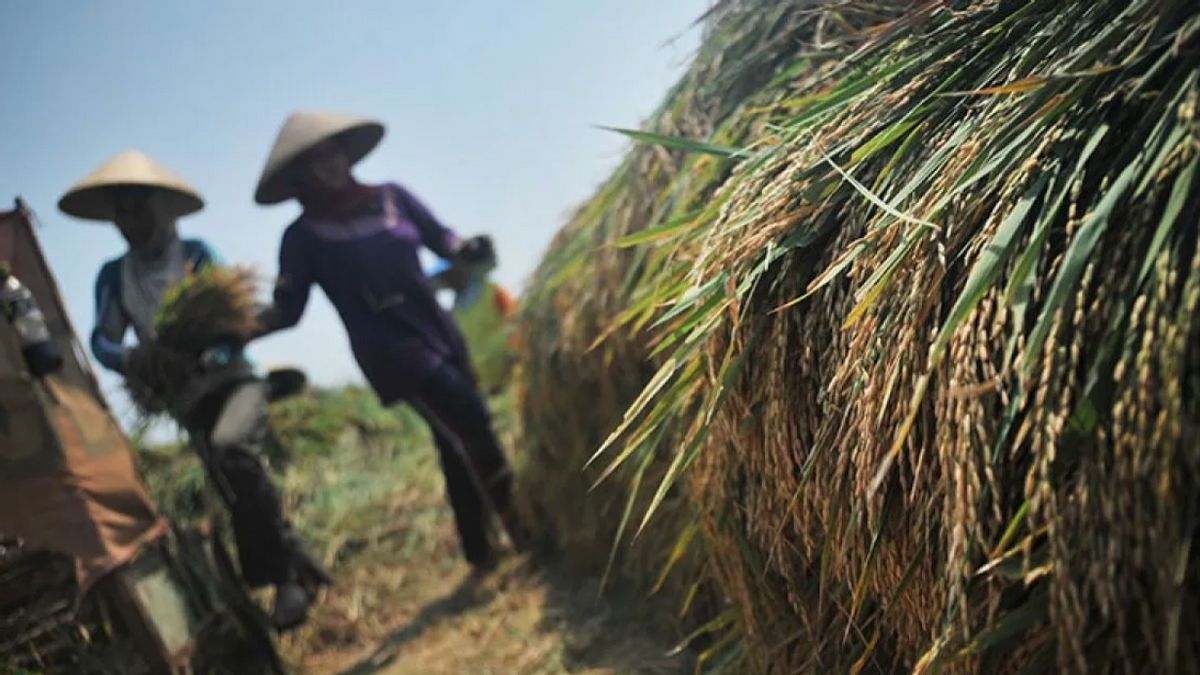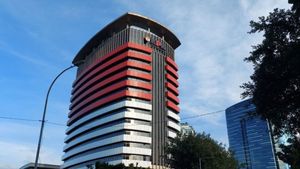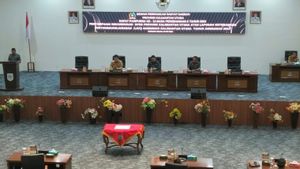
JAKARTA - The Indonesian Retail Entrepreneurs Association (Aprindo) has requested the government's consideration to relax the Highest Retail Price (HET) and reference prices for several food commodities that have the potential to increase in February 2024. The commodities in question include rice, sugar, cooking oil and so on.
Chairman of Aprindo Roy N Mandey revealed that the request for relaxation of HET was addressed at a certain/temporary time or as long as it was still being studied and there was no decision to make changes to the HET & Reference Price through the Coordination Meeting.
"In order to prevent vacancies or scarcity (scarcity) of these important basic commodities in modern retail outlets in Indonesia, where scarcity occurs, it will lead to panic buying consumers, who will compete to buy and even store essential staples because they are worried that goods will run out and the price situation will not be stable," Roy said in a written statement, Friday, February 9.
Roy assessed that the HET relaxation aims so that retailers can buy these food commodities from producers who have raised the purchase price above HET over the past week by 20-35 percent from the previous price.
"We cannot regulate and control the price determined by the producer of basic & important commodities, because prices are set by producers as the upstream sector which will then flow to us in the downstream sector through the distribution network, for further purchase or purchase by the public at modern retail outlets," he said.
Currently, retailers are starting to have difficulty getting local premium-type rice supplies with 5 kg packaging. According to Roy, the limited rice supply is due to the fact that the harvest period is not yet starting, which is expected to only occur in mid-March 2024.
In addition, Roy said, the scarcity occurred because the government had not yet entered the medium type rice (SPHP) imported by the government.
"This situation and unbalanced condition between supply and demand has resulted in an increase in the HET of rice in the modern retail market (swalayan shops) and the people's market (traditional markets).
관련 항목:
According to Roy, currently retail entrepreneurs are forced to buy rice at prices above HET rather than local rice producers or suppliers. This, he said, led to an increase in rice prices at the retail level.
The association also provides advice to the government and the food task force and PPNS so that they do not only prioritize intensive communication from the government (ministerial/institutional) to business actors from upstream to downstream sectors only
However, Roy continued, his party also suggested that the government should not only present policies that business actors can feel directly, but rather policies that are urgency-oriented and can solve the problem of commodity prices of basic commodities.
"We need a wise, wise attitude and guarantee from the government and the authorities (food task force & PPNS) to also implement the HET rules that have been set and running so far so that retailers can continue to buy, provide and sell basic needs for the community," he concluded.
The English, Chinese, Japanese, Arabic, and French versions are automatically generated by the AI. So there may still be inaccuracies in translating, please always see Indonesian as our main language. (system supported by DigitalSiber.id)

















